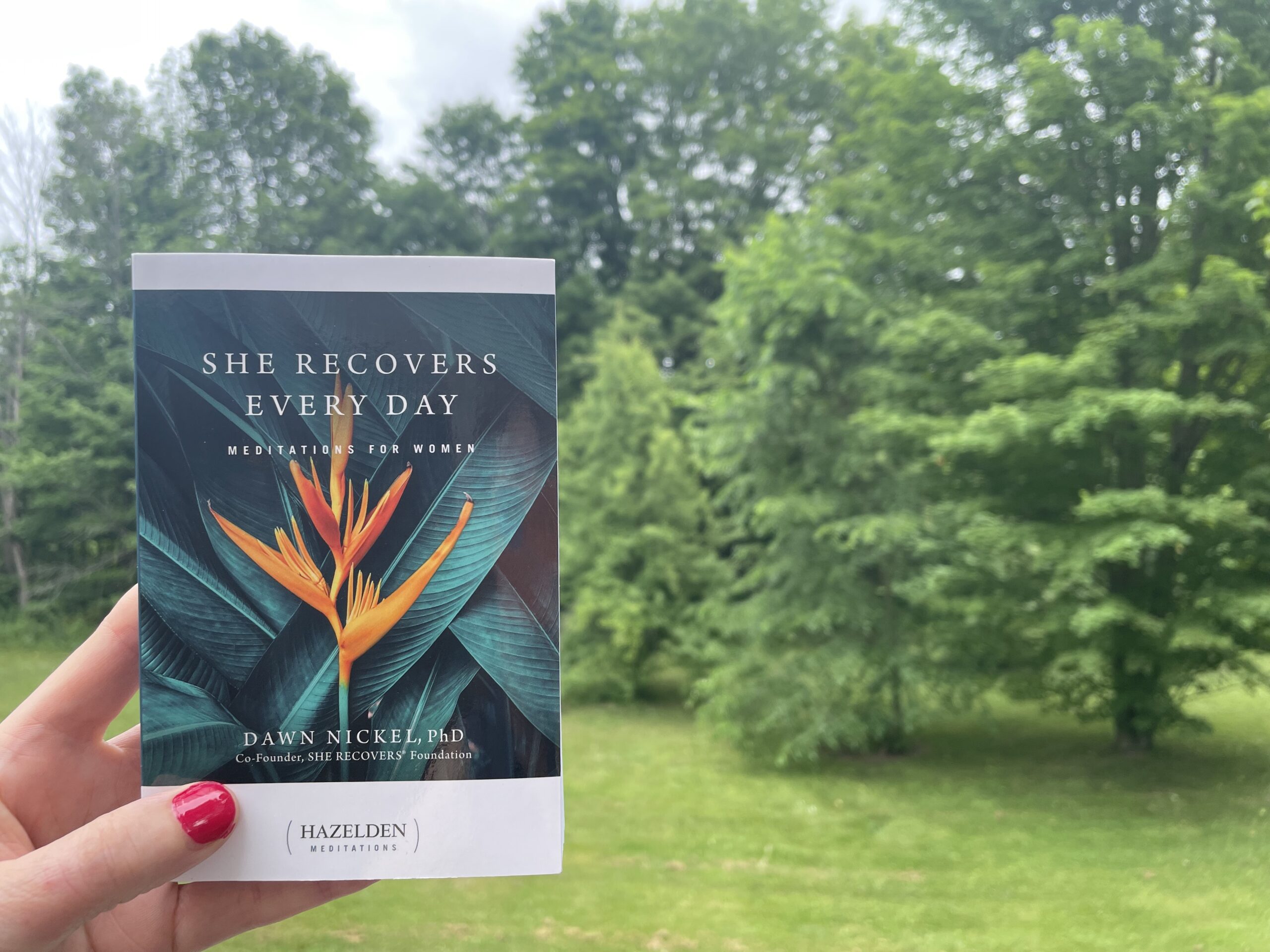It would be hard to quantify the impact that Dawn Nickel has had on revolutionizing recovery for women, in Canada and all over the world.
As the co-founder of She Recovers, a non-profit charity and grassroots movement serving over 325,000 women in or seeking recovery, Dawn is a trailblazer in the mental health space, and has been instrumental in building community support systems, reducing stigma, and shifting the way society thinks and talks about recovery. Her meditation book, She Recovers Every Day, is one that women in recovery have been waiting for.
“What makes this book different is that it’s like a smorgasbord of thinking. I talk about abstinence and non-abstinence and harm reduction. It invites people to think about all the various topics associated with recovery,” Dawn tells me, from her home in Victoria, BC.
Since launching She Recovers with her daughter, Taryn Strong, back in 2011, Dawn has used her platform to consistently push the message that we are all recovering from something, and that we all need to be supported to follow individualized pathways and patchworks of recovery. While these ideas may sound intuitive now, neither were perspectives widely accepted, even just a few years ago. There are still people who view those who are suffering with drug or alcohol issues as degenerates or “the other”, and many who fail to recognize that a one-size-fits-all approach is futile.
“We think we’re in recovery sometimes because of the substances but it’s never really the substances, the substances are our coping mechanism, or the symptom or the thing that leads us into recognition that we need to do something different if we want to live a happier healthier life. They’ve been our coping mechanism for so long that those aren’t the actual issues, which are so much more underneath.”
If you ever attend a She Recovers meeting (they host virtual ones daily), you’ll know that those in attendance are recovering from a multitude of issues: alcohol and drugs, sex addiction, work addiction, disordered eating, cancer, divorce, grief… the list goes on. Humans aren’t designed like a binary switchboard, where problems can be easily isolated, switched on or off. We feel, we bleed, we change.
Many of us don’t even realize we have overlapping issues, until we begin our recovery journey. Overwhelm is a feeling that can easily take over, and it can be paralyzing. Dawn recommends focusing on one thing at a time. “Figure out which one is going to take you down the fastest, then focus on that. When I got into recovery in 1987, it was you have a drug problem and you have to focus on the drugs and you can’t focus on anything else, everything else is an outside issue. I was in a very abusive marriage and if somebody had told me to get out of the marriage first, I probably would have done a little better.”
The self-help section at any bookstore overflows with books that hone in on one problem (debt recovery, burnout, alcoholism), but Dawn’s book takes a more holistic approach, recognizing that we are complex and messy beings; there is never one issue, or one solution.
“This book was intended to be for everybody, so that everybody could engage in this daily practice of picking up a small book that is easy to carry around and start your day with a thought about recovery,” says Dawn earnestly. “For me it connects my head and my heart. I live in my head and so when I’m reading something in a daily meditation book, all of the readings are intended to reach people’s hearts, to pique their interest and intellect as well, but for me it gives me that grounding moment in the morning where I’m thinking about something but also feeling into it.”
Over the years, Dawn has witnessed the transformations of thousands of women. While every story is unique, “unworthiness” is a common theme. “Not enoughness… it’s so deeply ingrained in us. It’s why we’re here, it’s why we’re in recovery. At some point in our lives, something happened to us that made us doubt our worthiness and whether we were enough. That’s definitely the underlying thing that I’ve seen over these past 3.5 decades – that little hole that so many of us carry that we need to fill up with all this other stuff all the time, otherwise the hole just sits there gaping.”
Meditation helps us get present, and when we’re present, we’re less inclined to obsess over filling that hole, be it with a drink, a pill, a purchase, or the hit of dopamine that happens when someone validates us with a LIKE on social media. Like Dawn says: we’re all recovering from something.
Published by Hazelden, 20% of proceeds from She Recovers Every Day sales go towards the She Recovers Foundation. Find out more.




 Follow Us On Instagram
Follow Us On Instagram
